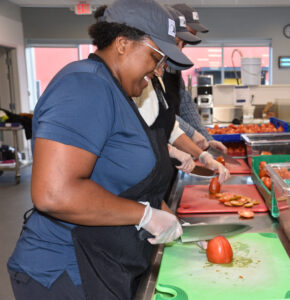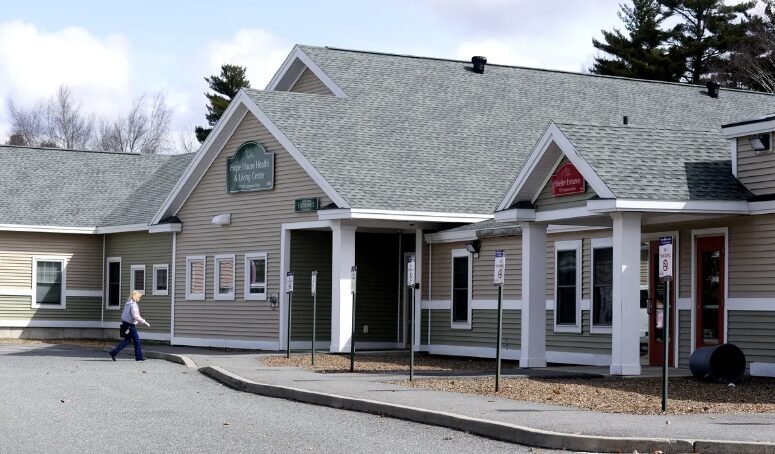A sad reality of emergency shelters is that they are always at risk of closing their doors. Over the past fifteen years, at least nine shelters in Maine have closed due to funding issues.

Site-based Housing First is the long-term permanent housing solution for many of the people in Maine experiencing chronic homelessness, but until the new Housing First properties are built, Maine needs every single bed at every existing shelter to be available to meet the needs of the community.
In fall 2023, Penobscot Community Health Center (PCHC) announced that due to financial considerations, it would close Hope House – its low-barrier 56-bed emergency shelter in Bangor – in fall 2024 unless another provider could take over operations.
After thoroughly assessing the potential impacts and thanks to investment from the state to directly support low-barrier emergency shelters for the next three years, Preble Street will take over operations of Hope House to prevent its closure in February 2025.
The loss of Hope House would have been felt statewide. When Preble Street was approached to take over shelter operations, we knew immediately that we wanted to support the people whose safety would be most impacted by this loss of shelter. But, as an agency that so many Mainers rely on, we had to do our due diligence on how adding this 24/7, 365 day a year program could potentially impact our existing work to end hunger, homelessness, and poverty.
Hope House is one of only five privately operated adult low-barrier shelters in Maine and the only one north of Waterville. Hope House will be the first 24/7 Preble Street program outside of Portland.
Preble Street takes over the operations of Hope House while recognizing that low-barrier shelters in Maine face a growing yearly budget deficit. Serving as the ‘emergency room’ in the shelter-to-housing continuum, low-barrier shelters are directly on the frontlines of Maine’s opioid crisis. On April 22, 2024, Governor Janet Mills signed the supplemental budget into law, which included three years of $2.5M in annual funding — a total of $7.5M — to directly support low-barrier emergency shelters. Thanks to this support from Governor Mills and the Maine Legislature, Preble Street feels confident about managing the funding gaps for Hope House through 2027, ensuring that this shelter will remain open and staffed for vulnerable Mainers in need of shelter.
“For the past twelve years, Preble Street’s Veterans Housing program has had a Bangor office and provides statewide services. Our anti-trafficking work is also statewide,” shares Mark Swann. “Hope House wasn’t part of our plans – but neither was a women’s shelter or a youth shelter years ago. We are excited to become a bigger part of the Bangor community and will continue to fill in the budget gaps with the private support from community members and other funders that help us keep the doors open.”
Maine needs to continue prioritizing sustainable, permanent funding revenue for our critically important low-barrier shelters to ensure that funding challenges do not impact the operations of Hope House – or any other Maine shelter.

Board Profile – Lauren Gauthier
How did you first get involved with Preble Street? My wife is from Maine, and we’d come up frequently to visit my in-laws before moving up here permanently. On one of these trips, I was lucky enough to meet Swannie through my father-in-law, John Roberts, and got a tour of the organization. It stuck with

50 years of food security
At 6 am on a frosty morning in early November, the lights and ovens get turned on at the Preble Street Food Security Hub (FSH). By 7am, volunteers and staff begin to fill the kitchen, and by 8:30 am, everything is humming along. The smell of roast chicken fills the air while knives go thunk

Everyone deserves a safety net
“I had just one thing in mind, one goal in mind,” shares Cindy Neff, from the apartment building she has been living in for the past six months. “I wanted to get off the streets. I wanted to live again. I wanted a roof over my head. I wanted that safety net back for myself.
